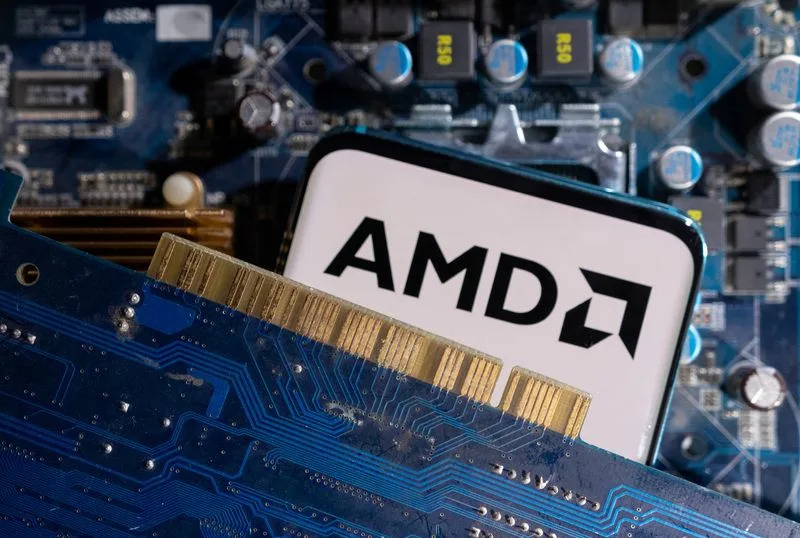Advanced Micro Devices failed to impress investors waiting for the chipmaker to gain ground against AI heavyweight Nvidia, even as its quarterly results and revenue outlook exceeded analyst estimates on Tuesday.
Shares of the Santa Clara, California-based company dropped about 10% in extended trading. AMD’s shares fell about 18% last year, in contrast to larger rival Nvidia’s rise of more than 171%.
AMD has been fighting to increase its share of the market for sophisticated AI processors sold mostly by Nvidia to heavyweight tech customers including Amazon and Microsoft.
AMD reported fourth-quarter data center revenue of $3.9 billion, which missed the consensus estimate of $4.15 billion. The company’s data center segment is a proxy for its AI revenue as it contains revenue from its line of processors that compete with Nvidia’s chips.
For 2024, AMD said it generated more than $5 billion of AI chip revenue.
During a conference call with analysts, AMD Chief Executive Lisa Su said the company’s data center sales in the current quarter will be down about 7% from the just-ended quarter, in line with an overall expected decline in AMD’s revenue.
Su declined to give a forecast for the company’s AI chips, but said AMD expects “tens of billions” of dollars in sales “in the next couple of years.”
Summit Insight analyst Kinngai Chan said: “AMD’s AI GPU is probably not tracking to investors’ expectations. We continue to believe Nvidia is opening a gap against AMD in AI GPU performance and value.”
AMD’s forecast comes as tech giants including Microsoft and Meta increasingly dedicate resources to developing their own silicon for processing large data volumes required by GenAI.
Microsoft and Meta unveiled new AI chip versions last year, casting doubt on AMD’s ability to compete in a race to dominate AI infrastructure.
Marvell and Broadcom help other companies design their own custom chips, contrary to off-the-shelf processors provided by AMD and Nvidia and have contracts with various cloud computing companies.
Su told analysts that AMD is working to compete against Broadcom and Marvell in collaborating with its customers to create custom AI chips. Reuters last year reported that Nvidia has also entered that business.
“We are very involved in a number of (custom chip) discussions with our customers as well,” Su said. “They’d like to take our baseline (intellectual property) and really innovate on top of that.”



